Speakers
Brand New World: Distinguishing Oneself in the Global Flow
October 4-5, 2012
Nicole Aylwin
Ph.D. Candidate in Communication and Culture at York University
Nicole Aylwin is a Ph.D. Candidate in Communication and Culture at York University.Her dissertation Thinking Transnationally: Cultural Diversity, Cultural Rights and Cultural Policy in a Globalized World, which she is will defend this Fall, is supervised by Dr. Rosemary Coombe and examines the relationship between the growing discourses of cultural diversity and the emergence of a transnational cultural policy and cultural rights framework. Interested widely in issues of intellectual property, cultural property, cultural diversity and human rights, Nicole has published on indigenous cultural heritage rights and international law, geographical indications, human rights and development, fair dealing and Canada’s international cultural policy commitments and the relationship between non-discrimination practices and international cultural rights.
Nicole currently holds a Research Fellowship with the interdisciplinary research project Intellectual Property Issues in Intangible Cultural Heritage at Simon Fraser University in British Columbia, for her project “Managing Heritage Resources: Developing Community Based Cultural Policy in an Era of Cultural Diversity and Cultural Rights” and she acts as the Academic Research Coordinator for the York Centre for Public Policy and Law at York University in Toronto. She is also a member of the U40 Policy Programme, a network of cultural policy experts who collaborate on issues related to the international debate on cultural diversity and on the implementation of the UNESCO Convention on the protection and promotion of the diversity of cultural expressions.
She currently teaches at York University and the University of Ontario Institute of Technology.
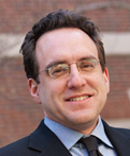
Barton Beebe
Professor of Law, New York University School of Law
Barton Beebe is a Professor of Law at New York University School of Law, where he specializes in the doctrinal, empirical, and cultural analysis of intellectual property law. He has been the Anne Urowsky Visiting Professor of Law at Yale Law School and a Visiting Professor of Law at Stanford Law School, and has taught courses at the Centre d'Études Internationales de la Propriété Intellectuelle at the Université de Strasbourg, the Munich Intellectual Property Law Center, and the State Intellectual Property Office of the People’s Republic of China. Professor Beebe clerked for Judge Denise Cote of the Southern District of New York. His recent published work includes Intellectual Property Law and the Sumptuary Code, 123 Harvard Law Review 809 (2010), and Fair Use and Legal Futurism, 24 Law & Literature __ (2012). Professor Beebe received his J.D. from Yale Law School, his Ph.D. in English Literature from Princeton University, and his B.A. from the University of Chicago.
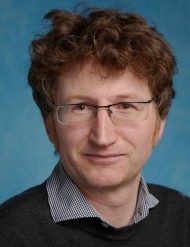
Lionel Bently
Professor of Intellectual Property, University of Cambridge
Herchel Smith Professor of Intellectual Property, University of Cambridge; Director of CIPIL (Centre for Intellectual Property and Information Law, University of Cambridge) (www.cipil.law.cam.ac.uk); Professorial Fellow of Emmanuel College, Cambridge. Barrister (Inner Temple, 2009); Associate Tenant, 11 South Square, Grays Inn.
Formerly: Lecturer in Law, University of Keele; Professor of Law, King's College, London. Yong Shook Lin Visiting Professor, National University of Singapore (2007) and Visiting Professor of European Law, Columbia University (2008).
Co-author of: The Making of Modern Intellectual Property Law: The British Experience, 1760-1911 (CUP, 1998) (with Brad Sherman); Intellectual Property Law (Oxford University Press) (1st ed, 2001; 2d ed, 2004; 3d ed, 2009; 4th ed, forthcoming, 2013) (with Brad Sherman); Gurry on Breach of Confidence: The Protection of Confidential Information (OUP, 2012) with T Aplin, S Malynicz and P Johnson)
Principal Investigator/Co-director, Primary Sources on Copyright, 1450-1900 (www.copyrighthistory.org)
Co-editor: Trade Marks and Brands: An Interdisciplinary Critique (2008) (with J Davis and JGC Ginsburg); Privilege and Property: Essays on the History of Copyright (OpenBook, 2010) (with R Deazley and M Kretschmer); Intellectual Property in the New Millennium: Essays in Honour of William Cornish (CUP, 2004) (with D Vaver); The Common Law of Intellectual Property: Essays in Honour of Professor David Vaver (Hart, 2010) (with Catherine Ng and G D’Agostino); Copyright and Piracy: An Interdisciplinary Critique (CUP, 2010) (with J Davis and JGC Ginsburg); Global Copyright: Three Hundred Years Since the Statute of Anne(Edward Elgar 2009) (with U Suthersanen and P Torremans)
Series Editor, Cambridge Intellectual Property and Information Law. Editorial Board, European Intellectual Property Review; Media and Arts Law Review; and Script-ed.
Founding Member, International Society for the History and Theory of Intellectual Property (ISHTIP) (2008-) (www.ishtip.org); Member, Drafting Committee of the Wittem Group of European Copyright Academics Considering a European Copyright Code (www.copyrightcode.eu); Member, Copyright Expert Panel, Strategic Advisory Board on Intellectual Property (2008-10); Council Member, Intellectual Property Institute; and Executive Board Member, British Literary and Artistic Copyright Association (2008-2012). Advisory Board, Institute of Brands and Innovation Law, UCL; Osgoode Hall IP Programme. Honorary Legal Advisor, Royal Historical Society.
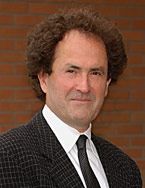
Mario Biagioli
Distinguished Professor of Science and Technology Studies & Law
Education
- Undergraduate Studies, Computer Science, University of Pisa, Italy 1978
- M.F.A. Museum Studies, History of Photography, Rochester Institute of Technology 1984
- M.A. History of Science, University of California, Berkeley 1986
- Ph.D. History of Science, University of California, Berkeley 1989
Distinguished Professor of Law and Science and Technology Studies (STS)
Mario Biagioli is a Distinguished Professor of Law and Science and Technology Studies (STS), and Director of the new Center for Innovation Studies. At the law school, he teaches courses on intellectual property in science, and on the history and philosophy of intellectual property.
Prior to joining King Hall, he was Professor of the History of Science at Harvard University, specializing in intellectual property in science. He has also taught at UCLA, Stanford, the Ecole des Hautes Etudes in Science Sociales (Paris), and the University of Aberdeen (Scotland). For more than a decade, Professor Biagioli has been studying problems of authorship and priority attribution in contemporary "Big Science," editing (with Peter Galison), Scientific Authorship (Routledge, 2003). He has subsequently published on the history of patenting in the sciences, the development of specifications requirements, the peer review of patent applications. With Pater Jaszi and Martha Woodmansee, he has edited Making and Unmaking Intellectual Property (Chicago, 2011) and is working on The Author as Vegetable, a book on the role of environmental concepts in contemporary discussions of the knowledge commons. Other current research interests include definitions of patentable subject matter and the role of secrecy in science.
A former Guggenheim Fellow, he is a founding member of the International Society for the Theory and History of Intellectual Property (ISTHIP). After studying computer science at the University of Pisa (Italy) and receiving an MFA in photography from the Visual Studies Workshop and the Rochester Institute of Technology, he was awarded a PhD in history of science from UC Berkeley in 1989. He is also the author of Galileo Courtier (Chicago, 1993 - translated in German, Greek, Spanish, and Portuguese), Galileo's Instruments of Credit (Chicago, 2006), and the editor of The Science Studies Reader (Routledge, 1998).
Special Interests
Law And Science, Intellectual Property, Legal History, Ethics, Patent Law, Law And Cultural Studies, Science and Technology Studies
Anupam Chander
Professor of Law, UC Davis
Anupam Chander is Professor of Law at the University of California, Davis, where he is the Director of the California International Law Center and Martin Luther King, Jr. Hall Research Scholar. His research focuses on the regulation of globalization and digitization.
He has been a visiting professor at Yale Law School, the University of Chicago Law School, Stanford Law School, and Cornell Law School. He has published widely in the nation’s leading law journals, including articles in the Yale Law Journal, the NYU Law Journal, the University of Chicago Law Journal, and the California Law Review. His new book, The Electronic Silk Road: How the Web Brings the World Together in Trade, is forthcoming in spring 2013 from Yale University Press.
A graduate of Harvard College and Yale Law School, he clerked for Chief Judge Jon O. Newman of the Second Circuit Court of Appeals and Judge William A. Norris of the Ninth Circuit Court of Appeals. He practiced law in New York and Hong Kong with Cleary, Gottlieb, Steen & Hamilton.

Margaret Chon
Donald and Lynda Horowitz Professor for the Pursuit of Justice, Seattle University
Since joining the Seattle University faculty in 1996, Margaret Chon has been a dedicated scholar and teacher of intellectual property and critical theory. She is currently the Donald & Lynda Horowitz Professor for the Pursuit of Justice, and formerly Associate Dean for Research. Her current scholarship explores the global governance dimensions of intellectual property, especially their distributional consequences. During the 2011-12 year, she is Senior Global Emile Noël Research Fellow in the Jean Monnet Center for International and Regional Economic Law & Justice at New York University School of Law.
Following graduation from law school in 1986, Chon worked for a year as a staff attorney at the U.S. Court of Appeals for the Third Circuit. She then clerked for the Honorable A. Leon Higginbotham, Jr., and practiced intellectual property law with Schnader, Harrison, Segal & Lewis in Philadelphia. Immediately prior to her first academic appointment, she served in an administrative clerkship with Chief Judge Dolores K. Sloviter of the U.S. Court of Appeals for the Third Circuit, where she assisted in the revision of the local Third Circuit rules. Throughout her professional career, she has been and continues to be active in various community and professional organizations.
EDUCATION
- A.B., Cornell University College of Arts and Science, 1979
- M.H.S.A., University of Michigan School of Public Health, 1981
- J.D., cum laude, University of Michigan Law School, 1986
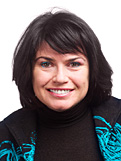
Rosemary J. Coombe
Tier One Canada Research Chair in Law, Communication and Culture, York University in Toronto
Rosemary J. Coombe is a Tier One Canada Research Chair in Law, Communication and Culture at York University in Toronto, where she teaches in the Communications and Culture Joint PhD/MA Programme, and is cross-appointed to the Osgoode Hall Law School Graduate Programme, and the Graduate Programme in Social and Political Thought. Prior to being awarded one of the country's first Canada Research Chairs she was Full Professor of Law at the University of Toronto Faculty of Law. She holds doctoral degrees in law and anthropology and publishes widely in anthropology, cultural studies, and law and society.
Her work addresses the cultural, political, and social implications of intellectual property laws. Her book, The Cultural Life of Intellectual Properties (1998 and reprinted in 2008) is a legal ethnography of the ways in which intellectual property law shapes cultural politics in consumer societies. She is at work on a project that considers ‘the work of culture’ in an era of informational capital. Topics include the protection of biological diversity and its relation to cultural diversity, the emergence of ‘biocultural heritage’ protections, the politics around the protection of traditional knowledge, the expanded use of geographical indications, and the culturalisation of rights claims more generally under conditions of neoliberalism, with special emphasis upon techniques of governmentality.
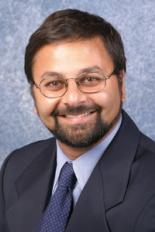
Deven Desai
Professor of law, Thomas Jefferson School of Law
Deven Desai is a law professor at the Thomas Jefferson School of Law and just completed serving as Academic Research Counsel at Google, Inc. As a law professor, he teaches trademark, intellectual property theory, business associations, and information privacy law. He is a graduate of the University of California, Berkeley and Yale Law School. He has also spent year as a Visiting Fellow at Princeton University’s Center for Information Technology Policy. Professor Desai’s scholarship examines how business interests and economic theories shape privacy and intellectual property law and where those arguments explain productivity or where they fail to capture society’s interest in the free flow of information and development. His articles include An Information Approach to Trademarks, 100 Georgetown Law Journal 2119 (2012); From Trademarks to Brands, 46 Florida Law Review 981 (2012); The Life and Death of Copyright 2011 Wisconsin Law Review 220 (2011); Brands, Competition, and the Law 2010 BYU Law Review 1425 (2010) (Spencer Waller co-author); Privacy? Property?: Reflections on the Implications of a Post-Human World 18 Kansas J. of Law & Public Policy (2009); Property, Persona, and Preservation, 81 Temple Law Review 67 (2008); and Confronting the Genericism Conundrum, 28 Cardozo Law Review 789 (2007) (Sandra L. Rierson, co-author).
EDUCATION
- J.D., Yale Law School
- B.A., University of California, Berkeley, summa cum laude
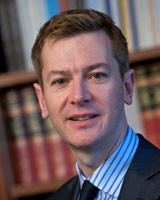
Graeme Dinwoodie
Professor of Intellectual Property and Information Technology Law, University of Oxford
Graeme Dinwoodie is the Professor of Intellectual Property and Information Technology Law at the University of Oxford. He is also Director of the Oxford Intellectual Property Research Centre, and a Professorial Fellow of St. Peter's College. Prior to taking up the IP Chair at Oxford, Professor Dinwoodie was a Professor of Law and Director of the Program in Intellectual Property Law at the Chicago-Kent College of Law. He has also previously taught at the University of Cincinnati College of Law and University of Pennsylvania School of Law, and from 2005-2009 held a Chair in Intellectual Property Law at Queen Mary College, University of London. He teaches and writes in all aspects of intellectual property law, with an emphasis on the international and comparative aspects of the discipline. He is the author of five casebooks including TRADEMARKS AND UNFAIR COMPETITION: LAW AND POLICY (3d ed 2010) (with Janis) and INTERNATIONAL INTELLECTUAL PROPERTY LAW AND POLICY (2d ed. 2008) (with Hennessey, Perlmutter and Austin). Professor Dinwoodie's articles have appeared in several leading law reviews. He received the 2008 Ladas Memorial Award from the International Trademark Association for his article Confusion Over Use: Contextualism in Trademark Law (with Janis). Professor Dinwoodie has served as a consultant to the World Intellectual Property Organization on matters of private international law, as an Adviser to the American Law Institute Project on Principles on Jurisdiction and Recognition of Judgments in Intellectual Property Matters, and as a Consultant to the United Nations Conference on Trade and Development on the Protection of Traditional Knowledge. He is a past Chair of the Intellectual Property Section of the Association of American Law Schools and the current President of the International Association for the Advancement of Teaching and Research in Intellectual Property (ATRIP). Professor Dinwoodie was elected to the American Law Institute in 2003, and in 2008 was awarded the Pattishall Medal for Excellence in Teaching Trademark and Trade Identity Law by the International Trademark Association. Prior to teaching, Professor Dinwoodie had been an associate with Sullivan and Cromwell in New York. Professor Dinwoodie holds a First Class Honors LL.B. degree from the University of Glasgow, an LL.M. from Harvard Law School, and a J.S.D. from Columbia Law School. He was the Burton Fellow in residence at Columbia Law School for 1988-89, working in the field of intellectual property law, and a John F. Kennedy Scholar at Harvard Law School for 1987-88.
Stacey L. Dogan
Professor of Law, Boston University
Law Alumni Scholar
Professor of Law
B.S., Massachusetts Institute of Technology
J.D., magna cum laude, Harvard Law School
Interests: intellectual property law; trademark law; copyright law
Professor Stacey Dogan is a leading scholar in intellectual property and competition law. She has written many articles on the application of trademark and copyright law to the online environment, with a particular emphasis on the role of intermediaries such as Napster and Google.
Professor Dogan has presented her research at numerous national and international conferences, and her writings have appeared in journals including the Stanford Law Review, Emory Law Journal, Iowa Law Review and Texas Law Review. In the fall of 2008, she became the co-editor-in-chief of the Journal of the Copyright Society, a peer-reviewed copyright journal. She is also the incoming chair of the Intellectual Property Section of the Association of American Law Schools. She is an active participant in educational programs with the local bar, leading seminars and discussions for the Boston Bar Association, Massachusetts Continuing Legal Education and the Massachusetts Volunteer Lawyers for the Arts. She has also participated in executive training sessions through the Northeastern University high-technology MBA program.
Before joining the BU faculty, Professor Dogan taught for over a decade at Northeastern University School of Law, where she focused on intellectual property and antitrust law. She came to teaching after several years practicing law with the Washington, D.C. law firm of Covington & Burling, where she specialized in antitrust litigation. After law school, she practiced with Heller, Ehrman, White & McAuliffe in San Francisco and served as a law clerk to the Honorable Judith Rogers of the U.S. Court of Appeals for the District of Columbia.
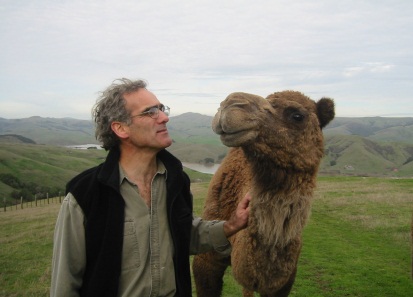
Paul Duguid
Adjunct Professor, School of Information, UC Berkeley
I am an adjunct professor at the School of Information at the University of California, Berkeley; a visiting fellow in business history in the School of Management at York University (UK), and an honorary fellow of the Institute for Entrepreneurship and Enterprise Development at Lancaster University School of Management. From 2005-2012 I held a chair as Professorial Research Fellow at Queen Mary, University of London; From 2005-2006 I was a visiting fellow at the Center for Science, Technology, Society at Santa Clara University. From 2002 to 2005, I was part-time visiting professor at Copenhagen Business School, Department of Organisational and Industrial Sociology; and in Spring, 2003, maître de recherche at the École Polytechnique in Paris. From 1989 to 2001 I was affiliated to the Office of Central Management at the Xerox Palo Alto Research Center; prior to that, a member of the Institute for Research on Learning.
At Berkeley, I co-teach "Concepts of Information" (info 218) and the "History of Information" (Info 103) with Geoffrey Nunberg.
My current research interests include the history and development of trademarks.
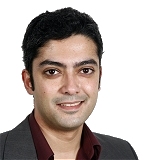
Dev Gangjee
Professor of Intellectual Property, London School of Economics and Political Science, Yale University
Dev joined the LSE in 2005, with a primary research interest in Intellectual Property. He is a graduate of the National Law School of India (BA, LLB) and the University of Oxford (BCL, DPhil), where he was a Rhodes Scholar. Dev is presently an Associate of the Oxford IP Research Centre and a Research Affiliate with IP Osgoode. He has advised both governments and law firms on intellectual property issues.
Dev’s research focuses broadly on Intellectual Property, but with a special emphasis on property interests in signs and the legal regulation of communication. This includes Trade Marks, Geographical Indications and Domain Names. He’s presented research on Geographical Indications in Japan, the UK, the US, China and India and is currently writing a monograph (CUP), while also editing a volume (Edward Elgar) on this subject. Additional research interests include the political economy of IP, collective innovation, IP and development and the protection of Traditional Knowledge.
Cori Hayden
Director, Science, Technology and Society Center and CSTMS, UC Berkeley
Associate Professor: Medical Anthropology Advisor, Medical Anthropology, Sociocultural Anthropology
Special Interests: Anthropology of science, technology, and medicine; Latin America (particularly Mexico); post-colonial science studies; kinship, gender, and queer studies.
Research: My research focuses on the anthropology of the biochemical sciences, global pharmaceutical politics, and postcolonial engagements with intellectual property and the politics of innovation and appropriation. These themes animated my 2003 book, When Nature Goes Public: The Making and Unmaking of Bioprospecting in Mexico, which examined the consequences of novel drug discovery partnerships linking global drug companies, Latin American research scientists, and indigenous communities. A key theme emerging from that work was how new deployments of the idioms of intellectual property serve as engines of both privatization and ‘public-ization,’ or the reconfiguration of notions of the public, the commons, and the public domain.
Subsequent projects have taken up this concern, in the context of the ethics of benefit-sharing in clinical trials (Taking as Giving), the ways that liberal concerns over piracy and improper copying continue to animate liberatory projects undertaken in the name of the public domain (The Proper Copy), and an investigation of how appeals to the ‘popular’ and populism may disrupt liberal epistemologies organized around public and private.
My current research is an ethnographic investigation of the recent emergence of generic drugs in Mexico, and the complex relationships– simultaneously biochemical, commercial, and political – currently unfolding in their name. Grounding my concern with a politics of access to medicines here is an interest in using the complex materialities of generic drugs to rethink the ‘substance’ of pharmaceutical politics and our analytics of value, sameness, and difference.
CURRENT PROGRAMS
Director, Science, Technology and Society Center and CSTMS, UC Berkeley
Co-Director with Professor Thomas Laqueur, Undergraduate Course Thread in The Sciences and Society (Townsend Humanities Lab)
Member, Laboratorio del Procomún (Commons Laboratory) Mexico City
EDUCATION
Ph.D. in Cultural Anthropology, University of California-Santa Cruz, 2000
M.A. in Cultural Anthropology, University of California-Santa Cruz, 1994
B.A. in Anthropology and Women's Studies, University of Virginia, 1992

Sonia Katyal
EXPERIENCE
Professor Katyal teaches in the areas of intellectual property, property and civil rights. Before coming to Fordham, Professor Katyal was an associate specializing in intellectual property litigation in the San Francisco office of Covington & Burling.
She received her A.B. from Brown University in 1993, and her J.D. from the University of Chicago Law School in 1998.
After law school, Prof. Katyal clerked for the Honorable Carlos Moreno (now a California Supreme Court Justice) in the Central District of California from 1998-99 and the Honorable Dorothy Nelson in the U.S. Court of Appeals for the Ninth Circuit from 1999-2000.
Prof. Katyal's scholarly work focuses on intellectual property, civil rights (including gender and sexuality), and new media. Her current projects study the relationship between copyright enforcement and privacy (as applied to peer-to-peer technology); and the impact of artistic expression and parody on corporate identity, advertising, and brand equity. She also works on issues relating to intellectual property and indigenous people's rights, with a special focus on cultural property in the United States and abroad.
Katyal is also the winner of four awards for her scholarly work: her paper, "Exporting Identity," received a Dukeminier Award in 2002; in 2004, another paper, "The New Surveillance," won the Yale Cybercrime Award.
A recent paper, "Semiotic Disobedience," was awarded an Honorable Mention in the 2006 Scholarly Papers Competition by the American Association of Law Schools, and was profiled in the New York Times Magazine.
In March of 2008, Katyal was awarded a grant from the Warhol Foundation for her book, Contrabrand, which studies the relationship between art, advertising and intellectual property. Katyal is the first law professor to receive a grant through The Creative Capital/ Warhol Foundation Arts Writers Grant, a program created to support independent, progressive arts publications and individual arts writers.
Her book (co-authored with Eduardo M. Penalver), Property Outlaws, came out in February 2010 from Yale University Press.
Education
- University of Chicago Law School, J.D., 1998
- Brown University, A.B., 1993
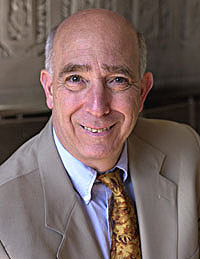
Daniel J. Kevles
Stanley Woodward Professor of History, Professor of History of Medicine, American Studies, and Law (adjunct), Yale University
Professor Kevles recieved his B.A. from Princeton University (Physics) in 1960, training at Oxford University (European History) from 1960-61, and his Ph.D. from Princeton (History) in 1964. His research and writings encompass the interplay of science, technology, and society past and present with a focus on the United States. His particular research interests include the history of physics, biology, scientific fraud and misconduct, plant and animal breeding, biotechnology, intellectual property, and science, arms, and the state.
His teaching areas are the history of modern science and technology, including genetics, physics, science and technology in America, innovation and intellectual property in living organisms, science and national security, and the United States in the 1970s.
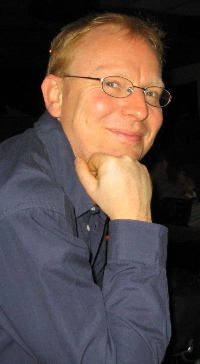
James Leach
Professor, Department of Anthropology, University of Aberdeen
I hold a Personal Chair in Anthropology at the University of Aberdeen in Scotland. My research focuses on creativity, knowledge production, and ownership; on art, science, and collaboration; on Papua New Guinea; and on the development of new technologies and their implications for social form.
My published works reflect these interests with books and articles focused on kinship, creativity, place/landscape and art in Papua New Guinea, on creativity and the person, intellectual and cultural property, knowledge production and exchange, on gender and free software, and on the relation of technology and law to artistic and collaborative practice.
Having been awarded the Royal Anthropological Institute J.B. Donne Prize in the Anthropology of Art for 1999, I was subsequently a recipient of The Philip Leverhulme Prize (in my case for a co-creative approach to anthropological research) in 2004.
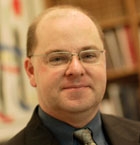
Mark A. Lemley
Professor of Law, Stanford University
Education
- BA (with distinction) Stanford University 1988
- JD University of California Berkeley School of Law (Boalt Hall) 1991
Biography
Director, Stanford Program in Law, Science & Technology; Director, LLM Program in Law, Science & Technology; Faculty Co-Director, Transatlantic Technology Law Forum
Mark Lemley is the William H. Neukom Professor of Law at Stanford Law School, the Director of the Stanford Program in Law, Science and Technology, and the Director of Stanford's LLM Program in Law, Science and Technology. He teaches intellectual property, computer and Internet law, patent law, and antitrust. He is the author of seven books (most in multiple editions) and 123 articles on these and related subjects, including the two-volume treatise IP and Antitrust. His works have been cited more than 130 times by courts, including seven United States Supreme Court opinions, and over 9,000 times in books and law review articles. His articles have been reprinted throughout the world, and translated into Chinese, Japanese, Korean, Spanish, Italian, and Danish. He has taught intellectual property law to federal and state judges at numerous Federal Judicial Center and ABA programs, has testified seven times before Congress and numerous times before the California legislature, the Federal Trade Commission and the Antitrust Modernization Commission on patent, trade secret, antitrust and constitutional law matters, and has filed numerous amicus briefs before the U.S. Supreme Court, the California Supreme Court, and the federal circuit courts of appeals.
Mark is a founding partner of Durie Tangri LLP. He litigates and counsels clients in all areas of intellectual property, antitrust, and Internet law. He has argued six Federal appellate cases and numerous district court cases, and represented clients including Comcast, Genentech, Google, Grokster, Hummer Winblad, Impax, Intel, NetFlix, Palm, TiVo, and the University of Colorado Foundation in over 80 cases in two decades as as lawyer.
Mark is the founder and a board member of Lex Machina, Inc., a startup company providing data and analytics around IP disputes to law firms, companies, courts, and policy-makers.
Mark has been named California Lawyer's Attorney of the Year (2005), Best Lawyers’ San Francisco IP Lawyer of the Year (2010), and a Young Global Leader by the Davos World Economic Forum (2007). In 2009 he received the California State Bar’s inaugural IP Vanguard award. In 2002 he was chosen Boalt's Young Alumnus of the Year. He has been recognized as one of the top 50 litigators in the country under 45 by the American Lawyer (2007), one of the 100 most influential lawyers in the nation by the National Law Journal (2006), one of the 10 most admired attorneys in IP (2010) by IP360, one of the 25 most influential people in IP (2010) by the American Lawyer, one of the top intellectual property lawyers in California (2003, 2007, 2009, 2010), and one of the 100 most influential lawyers in California (2004, 2005, 2006, 2008, 2009, 2011) by the Daily Journal, among other honors.
After graduating from law school, Mark clerked for Judge Dorothy Nelson on the United States Court of Appeals for the Ninth Circuit, and has practiced law in Silicon Valley with Brown & Bain and with Fish & Richardson and in San Francisco with Keker & Van Nest. Until January 2000, he was the Marrs McLean Professor of Law at the University of Texas School of Law, and until June 2004 he was the Elizabeth Josslyn Boalt Professor of Law at the Boalt Hall School of Law, University of California at Berkeley.
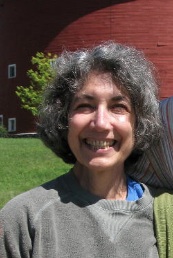
Evelyn Lincoln
Associate Professor, History of Art & Architecture and Italian Studies, Brown University
EVELYN LINCOLN, Ph.D., 1994, University of California, Berkeley
Associate Professor, History of Art & Architecture and Italian Studies; Director, Program in Renaissance and Early Modern Studies
Evelyn Lincoln earned a BA in Fine Arts and Literature from Antioch College in 1973, and went on to become a printmaker and museum curator in San Francisco, receiving a PhD in the History of Art from UC Berkeley in 1994, and joining the Department of the History of Art and Architecture at Brown University that year.
Her research in Art History looks at the practical and intellectual operations of communities of readers in the early modern period to locate networks of knowledge shared among those involved in the commerce and production of printing and printmaking in early modern Europe, with particular attention to how images were used to obtain, and display access to, knowledge, power, and patronage for readers with a common literacy in image and text. The currency of images as they interact with the read and spoken word has extended into research on early notions of intellectual property, and the visual representations of authorship, gender, and truth claims. She is the author of The Invention of the Italian Renaissance Printmaker (Yale UP: 2000) and Pictures and Readers in Early Modern Rome (Yale UP, forthcoming, 2013), and articles on early modern notions of authorship and responsibility, among other things .
Celia Lury
Professor of Sociology, Goldsmiths University of London
Professor | BA PhD
For a long time I have had two main areas of research interest: sociology of culture and feminist theory. My contributions to a sociology of culture draw upon the findings of a series of funded empirical research projects, exploring contemporary developments in the culture industry with a special focus on visual culture, consumer culture (Consumer Culture, a second edition is in press) and intellectual property (Cultural Rights and Global Culture Industry).
My contributions to feminist theory primarily concern the issue of identity (Prosthetic Culture, Feminism and Autobiography) and the changing significance of gender as a social and natural category(Global Nature, Global Culture).In the last few years I have begun to develop a research profileaddressing questions of matter, creativity and invention, and theinter-relationship between economy and society. This has beenfostered by my teaching at Goldsmiths and my participation in theCentre for the Study of Invention and Social Process. This involvedthe co-organisation of a conference, Virtuality, which led to thepublication of a Special Issue of Theory, Culture and Society(Inventive Life: Towards a New Vitalism), 2005, which has since beenpublished as a book by Sage. It was continued in my co-ordinationof the EU network on A Topological Approach to Cultural Dynamicswhich has contributed to an interest in methods, devices, maps andmodels and their role in the emergence of spaces of movement.
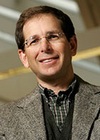
Peter S. Menell
Professor of Law, UC Berkeley
Title: Robert L. Bridges Professor of Law; Faculty Director, Berkeley Center for Law & Technology
After graduating from law school, Peter Menell clerked for Judge Jon O. Newman of the U.S. Court of Appeals for the 2nd Circuit. He joined the Boalt faculty in 1990 and co-founded the Berkeley Center for Law & Technology in 1995, where he serves as a director. Menell has visited at Harvard Law School and Stanford Law School. He has organized more than three dozen intellectual property education programs for the Federal Judicial Center since 1998.
Menell has authored Intellectual Property in the New Technological Age (with R. Merges and M. Lemley, 5th ed. 2010); Patent Case Management Judicial Guide (Federal Judicial Center 1st ed. 2009, 2d ed. forthcoming 2011) (with L. Pasahow, J. Pooley, and M. Powers); Software and Internet Law (with M. Lemley, R. Merges, P. Samuelson, and B. Carver, 3rd ed. 2006, 4th ed. 2011); Trademark, Unfair Competition, and Business Torts Law (with B. Beebe, T. Cotter, M. Lemley, & R. Merges) (2011); Environmental Law (International Library of Essays in Law and Legal Theory (Second Series) 2002); Property Law and Policy (with J. Dwyer, 1998); and Environmental Law and Policy (with Richard Stewart, 1994). He founded and supervises the Annual Review of Law and Technology (now in its 15th year, published by the Berkeley Technology Law Journal) and founded (and supervised the first four issues of) theAnnual Review of Environmental and Natural Resource Law (published by the Ecology Law Quarterly). Menell's recent articles include: The Mixed Heritage of Federal Intellectual Property Law and Ramifications for Statutory Interpretation, Intellectual Property and the Common Law (Shyam Balganesh, ed., forthcoming 2012); Governance of Intellectual Resources and the Disintegration of Intellectual Property in the Digital Age, Berkeley Technology Law Journal (forthcoming 2012); Forty Years of Wondering in the Wilderness and No Closer to the Promised Land: Bilski’s Superficial Textualism and the Missed Opportunity to Return Patent Law to its Technology Mooring, 63 Stanford Law Review 1289 (2011); In Search of Copyright’s Lost Ark: Interpreting the Right to Distribute in the Internet Age (manuscript 2011); Patent Claim Construction: A Modern Synthesis and Structured Framework, Berkeley Technology Law Journal (2010) (with M. Powers and S. Carlson); Pooh-Poohing Copyright Law’s "Inalienable" Termination Rights, 57 Journal of the Copyright Society 799 (2010) (with D. Nimmer); Judicial Resistance to Copyright Law's Inalienable Right to Terminate Transfers, 33Columbia Journal of Law and the Arts 227 (2010) (with D. Nimmer); Indirect Copyright Liability and Technological Change, 32 Columbia Journal of Law and the Arts 375 (2009); Intellectual Property and the Law of Land, Regulation (2008); Intellectual Property and the Property Rights Movement, Regulation (2007); Knowledge Access and Preservation Policy in the Digital Age, Houston Law Review (2007); Legal Realism in Action: Indirect Copyright Liability's Continuing Tort Framework and Sony's de facto Demise, 55 UCLA L. Rev. 14334 (2007) (with D. Nimmer); The Property Rights Movement's Embrace of Intellectual Property: True Love or Doomed Relationship?, 34 Ecology Law Quarterly 713 (2007); Unwinding Sony, 95 California Law Review 941 (2007) (with D. Nimmer); Bankruptcy Treatment of Intellectual Property Assets; An Economic Analysis, 22 Berkeley Technology Law Journal 733 (2007); Knowledge Access and Preservation Policy in the Digital Age, 44 Houston Law Review 1013 (2007); A Method for Reforming the Patent System, 13Michigan Telecommunications and Technology Law Review 487 (2007); Intellectual Property Law, chapter in Handbook of Law and Economics, edited by A. Mitchell Polinsky and Steven Shavell (2007) (with S. Scotchmer).
EDUCATION:
S.B., Massachusetts Institute of Technology (1980)
M.A., Stanford University (1982)
J.D., Harvard Law School (1986)
Ph.D., Stanford University (1986)
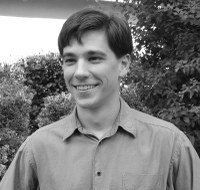
Colin Milburn
Associate Professor of English, UC Davis
- Associate Professor of English
- Gary Snyder Endowed Chair in Science and the Humanities
Ph.D./Ph.D., Harvard University, 2005
M.A., Stanford University, 1999
B.S., Stanford University, 1999
B.A., Stanford University, 1998
Colin Milburn joined the UC Davis faculty in 2005. His research focuses on the cultural relations between literature, science, and technology. His interests include science fiction, gothic horror, the history of biology, the history of physics, video games, and the digital humanities. He is a member of the Science & Technology Studies Program and the Center for Science and Innovation Studies. He is also affiliated with the programs in Cinema and Technocultural Studies, Cultural Studies, Performance Studies, and Critical Theory, as well as the W. M. Keck Center for Active Visualization in the Earth Sciences (KeckCAVES). Since 2009, he has been serving as the director of the UC Davis Humanities Innovation Lab, an experimental offshoot of the Digital Humanities Initiative.
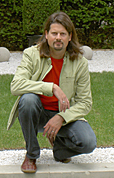
Stefano Ponte
Senior Researcher, Danish Institute for International Studies
Expertise
General: global economy, international (and African) political economy, economic development, global value chains, corporate strategies, standards, 'sustainability’ certifications, 'Brand Aid', celebrities, Product (RED) initiative
Specific: Africa, agro-food value chains, especially coffee, fish, wine and biofuels.
Theoretical: global value chain analysis, convention theory
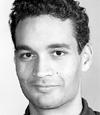
Alain Pottage
Professor of Law, London School of Economics and Political Science
Alain Pottage holds degrees from the University of Edinburgh and the London School of Economics. Before joining the Law Department of the LSE, he was a researcher at the Law Commission and a lecturer in the School of Law at King's College London. He has been a visiting professor at the Ecole des Hautes Etudes in Paris, the University of Sydney, and Cornell Law School.
Research interests lie in intellectual property (with particular reference to the field of biotechnology), theories of property, law and anthropology, and social theory.
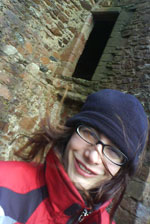
Kriss Ravetto-Biagioli
Associate Professor of Technocultural Studies, UC Davis
Kriss Ravetto-Biagioli is Associate Professor of Technocultural Studies. She is a film and media scholar whose work focuses on the problem of representing and theorizing the violence produced by nation building, ethnocentrism, and sexism in a manner that does not play into a vicious cycle where moralism, media images, and language produce their own forms of violence. She is the author of The Unmaking of Fascist Aesthetics (University of Minnesota Press, 2001). Her current book projects are “Mythopoetic Cinema on the Margins of Europe” and “The Digital Uncanny and Ghost Effects.” She has published articles on film, performance, installation art, and new media in Camera Obscura, Film Quarterly, Third Text, PAJ, Representations, Screen, and numerous collected volumes. Her interest in the “digital uncanny” and the culture of surveillance inspired “Recoded“—a large international conference on the politics and landscapes of new media—and “Figures of the Visceral.”
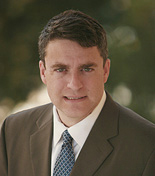
Gary Richardson
Associate Professor, UC Irvine
Associate Professor, Economics
School of Social Sciences
B.A., University of Chicago, 1988, Political Science
Ph.D., University of California, Berkeley, 1999, Economics
Research Interests
Economic History, Macroeconomics, Great Depression, Industrial Revolution, Property Rights and Economic Development
| URLs | Gary Richardson's Home Page |
| Gary Richardson's Curriculum Vitae | |
| Gary's Web Page at the NBER | |
| Academic Distinctions |
Research Associate, National Bureau of Economic Research |
| Link to this profile | http://www.faculty.uci.edu/profile.cfm?faculty_id=4750 |
Lisa Ann Richey
Researcher, The Department of Society and Globalization, Roskilde University
Research areas
- Economics, Politics Population policy State-society relations
- Gender studies, Ethnicity, Equal rights Gender and identity
- Health, Medicine Body politics Equity and health sector reform Health policy HIV/AIDS Reproductive health
- Industrial development, Development economics and planning, Developing countries Development technologiesDevelopment theory International aid politics
Curriculum
Lisa Ann Richey, Ph.D.
Curriculum Vitae November 2011
http://brandaidworld.wordpress.com/
Educational Level
Harvard University, USA Post-Doctoral Research and Training, Anthropological Demography (2000). Research Project: Methods, Meanings and Measurements in Contraceptive Decision-Making.
The University of North Carolina at Chapel Hill, USA Ph.D. Political Science (1999).
Dissertation: “Development,” Gender and Family Planning: Population Politics and the Tanzanian National Population Policy.
The University of North Carolina at Chapel Hill, USA M.A. Political Science (1992).
Master’s Thesis: Kenyan State-Society Relations: Women, Biopower, and Sexuality.
Furman University, USA B.A. Magna Cum Laude, Political Science (1989).
Honor’s Thesis: The Voting Patterns of U.S. Senators on Women’s Issues.
Positions Held
From March 2010 MSO Professor of International Development Studies, Society and Globalisation, Roskilde University
2005-2010 Associate Professor, Society and Globalisation, Roskilde University
2003-2005 Assistant Professor, International Development Studies, Roskilde University
(maternity leave 11/2004-5/2005)
2003-2004 Soros Reproductive Health and Rights Fellow, Heilbrunn Dept. of Population and Family Health, Mailman School of Public Health, Columbia University, New York, USA
2001-2003 Project Researcher, Danish Institute for International Studies (DIIS) formerly Centre for Development Research (CDR), Copenhagen
(maternity leave 2/2001-11/2001)
2000-2001 Post-Doctoral Research Fellow, Dept. of Population and International Health, Harvard School of Public Health, Harvard University, Boston, USA
1999-2000 Visiting Assistant Professor, Center of African Studies, University of Copenhagen
1999-1997 Paul Hardin PhD Research Fellow, Royster Society of Fellows, University of North Carolina at Chapel Hill, USA
1996-1997 Visiting Lecturer, Dept. of Political Science, Furman University, South Carolina, USA
1989-1996 Teaching Assistant (during MA and PhD study), Dept. of Political Science, Institute for International Studies, and Dept. of African Studies, University of North Carolina at Chapel Hill, USA
Dagmar Schäfer
Professor for Chinese Studies, University of Manchester
Before joining the University of Manchester as Professor for Chinese Studies, I headed the research group at the Max Planck Institute for the History of Science, Berlin - “Concepts and Modalities: Practical Knowledge Transmission”. Trained at the Julius-Maximilians University of Würzburg, I gained international experience at the Zhejiang University, PR China, the Ts’ing-hua University, Hs’in-ch’u, Taiwan, and the University of Pennsylvania
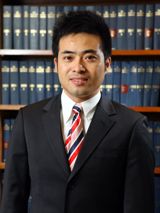
Haochen Sun 孫皓琛
Associate Professor of Law, University of Hong Kong
Haochen is currently an Assistant Professor of Law at the University of Hong Kong and Deputy Director of the Law and Technology Center at HKU. He is teaching at the University of California, Davis, School of Law as a Visiting Professor in the fall of 2012.
Haochen teaches and writes in the areas of intellectual property and property. His scholarship draws on social, cultural, and political thought to explore the theoretical foundations of intellectual property and property law. His most recent research is concerned with intellectual property protection of luxury goods, the ideas of social responsibility and justice in intellectual property law, the reconceptualization of the nature of fair use in copyright law, and a new social-political theory of the public trust doctrine. During the past few years, Haochen worked on theoretical and policy studies of various intellectual property issues, such as copyright protection and digital technology, the three-step test used in international copyright treaties, and patent and public health.
Haochen has presented papers at numerous conferences. His recent work on intellectual property has been selected for presentation at the Fourth Harvard-Stanford International Junior Faculty Forum, the plenary session of the Eleventh Intellectual Property Scholars Conference, and the Fourth Junior Scholars in Intellectual Property Workshop at Michigan State University College of Law. Haochen has also given faculty workshops or guest talks at Cornell Law School, Duke Law School, University of Toronto Faculty of Law, UC Davis Law School, University of North Carolina Law School, and Vanderbilt Law School.
In June 2012, Haochen organized a two-day conference entitled “Charting the New Frontiers of Intellectual Property Protection of Luxury Goods.” The conference featured talks by leading intellectual property scholars and practitioners from the United States, Europe, and Hong Kong. Recently, Haochen won a research grant to study the role of intellectual property in promoting the luxury industry from the Hong Kong Research Grants Council.
Before joining the University of Hong Kong, Haochen worked as a research fellow at the Harvard Berkman Center for Internet & Society and the Max Planck Institute for Intellectual Property. He obtained an LL.B. from Zhejiang University, and LL.M. degrees from the National University of Singapore and Harvard Law School. He is currently completing his SJD dissertation. The dissertation seeks to put forward a new ethical theory of copyright law.
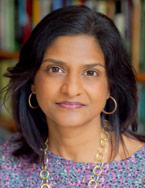
Madhavi Sunder
Professor of Law, UC Davis
Education
- B.A. Social Studies, Harvard University 1992
- J.D., Stanford University 1997
Professor of Law
Professor Sunder is a leading scholar of law and culture. She has been a Visiting Professor of Law at the Yale Law School, the University of Chicago Law School, and Cornell Law School. She was named a Carnegie Scholar in 2006. Her work traverses numerous legal fields, from intellectual property to human rights law and the First Amendment. She has published articles in the Yale Law Journal, the Stanford Law Review, the California Law Review, and Law and Contemporary Problems, among others. Her forthcoming book, From Goods to a Good Life: Intellectual Property and Global Justice, will be published by Yale University Press in 2012.
Special Interests
Intellectual Property (Including International Intellectual Property), Law And Cultural Studies, Cyberlaw, Women's Rights
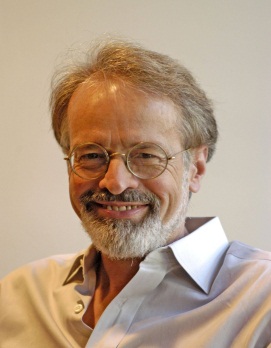
Heinrich von Staden
Professor Emeritus School of Historical Studies, Institute for Advanced Study, Princeton
Heinrich von Staden has written on a variety of topics in ancient science, medicine, philosophy, and literary theory, from the fifth century B.C. to the fifth century A.D. Drawing on a wide range of scientific, philosophical, and religious sources, he has contributed to the transformation of the history of ancient science and medicine, particularly of the Hellenistic period. His book Herophilus: The Art of Medicine in Early Alexandria (1989) is a major contribution to the history of Greek intellectual discourse. His current projects include a book on Erasistratus (one of the two early pioneers of human dissection), a study of the role of animals in ancient scientific theories and practices, and further work on the “semantics of matter” in ancient science.
Universität Tübingen, Ph.D. 1968; Yale University, Faculty 1968–98, William Lampson Professor of Classics and Comparative Literature 1996–98; University of California, Berkeley, Sather Professor of Classical Literature 2009–10; Institute for Advanced Study, Professor 1998–2010, Professor Emeritus 2010–; Académie des Inscriptions et Belles-Lettres, Institut de France, Foreign Member; Akademie der Wissenschaften, Göttingen, Corresponding Fellow; American Academy of Arts and Sciences, Fellow; American Philosophical Society, Member; British Academy, Corresponding Fellow; Finnish Academy of Science and Letters, Foreign Member; Université de Lausanne, Honorary Doctorate of Letters 2010; Université Paris-Sorbonne, Honorary Doctorate 2011; American Philological Association, Charles Goodwin Award of Merit 1992; American Association for History of Medicine, William H. Welch Medal 1993

